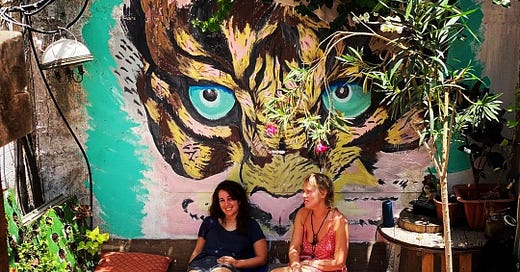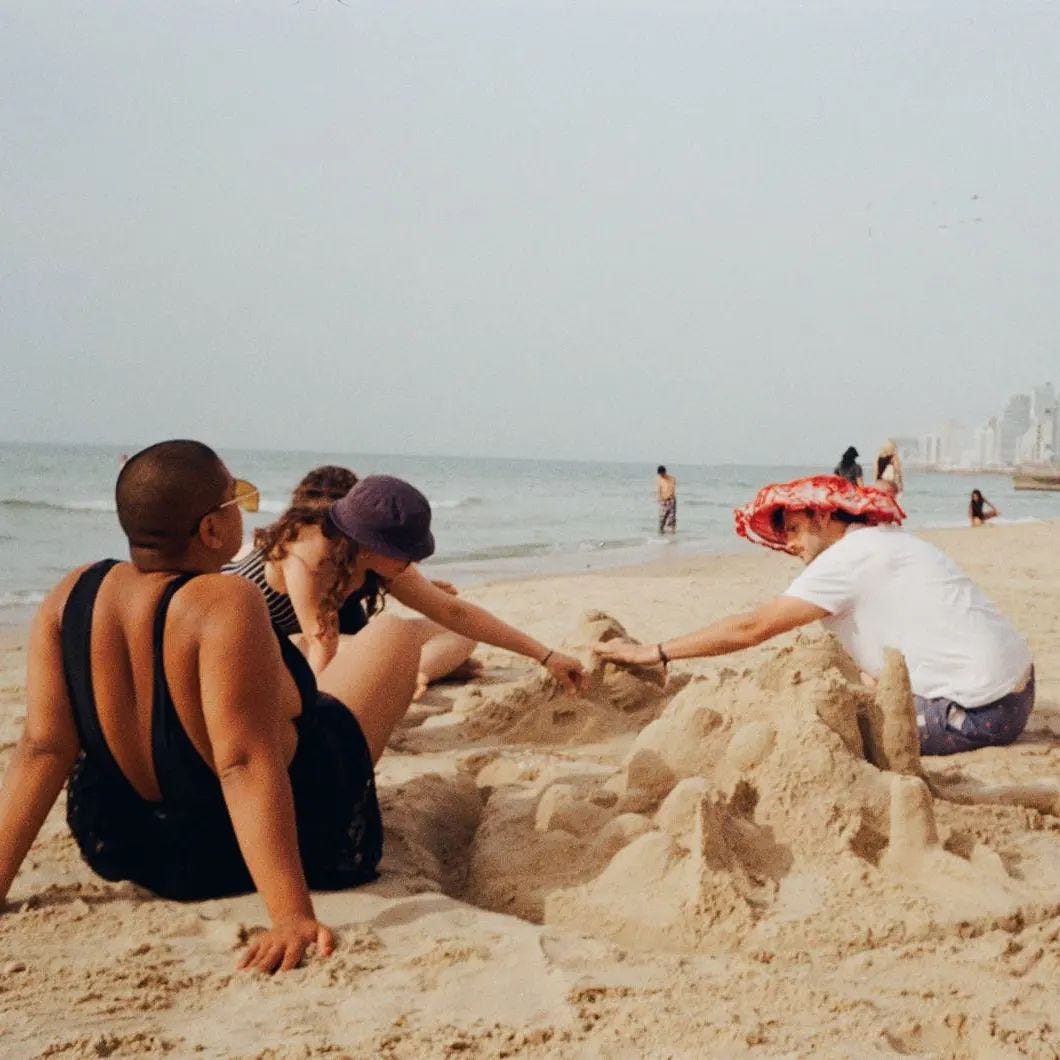Editor’s note: this is a reader-submitted case study from Zvi & Sarah, who lived at Postel for several years. This is the first time we’ve covered a commercial coliving space, where the owner is seeking to make a profit, rather than residents coming together to manage their space together. We think it’s harder to build authentic community in a commercial coliving space, but by no means impossible - as this post illustrates.
This is part of an ongoing series of deep dives on coliving spaces. To see others, visit the Supernuclear directory. If you want to contribute a case study of your community, let us know at hi@gosupernuclear.com
Welcome to Postel
Date founded: 2017
Location: Tel Aviv, Israel
Rented or owned: The community/hostel is a for-profit sharehouse, rented and divided by a single individual
Amount of space (number of beds/baths, any notable amenities): 56 beds, 12 showers, an outdoor garden, two roofs, common space with basement with regular “shows” and events, 3 kitchens, 2 washing machines, 2 minutes to the beach, 0 mirrors in the room, 7 mirrors in the halfway, 1 house dog, many stray cats, two hair dryers, communally owned cookware, 1 iron, 1 vacuum cleaner, cleaning services, 2 hammocks, irregular internet, irregular hot water, numerical key lock, irregular electricity, 4 free-to-use broken surfboards, rusted tandem bicycle
Governance: owned by a single for-profit individual, 1 house manager who lives there, 1 booking manager who lives there, 2+ resident volunteers who get rooms for free in exchange for work
Origins
The 2 buildings used to be an archive for storing government documents related to housing for disadvantaged individuals. The government was required to store the documents for 15 years. The government organization realized that the real estate was in a very valuable location, so they digitized the documents, moved the paper copies to a less desirable location in the “periphery” of Israel, then auctioned the space to interested individuals. The current landlord was the only person to put in a bid. The landlord was running a smaller hostel/commune elsewhere in Tel Aviv, stumbled on the location, and saw the opportunity for expansion.
The name “Postel” comes from two places. First, it comes from the Czech word for “bed.” Second, it comes from a concatenation of the English translation of the street name (“Ha-Doar” meaning “post office”) and the word “hostel.”
Inner workings
One full-time employee handles bookings. The majority of the clientele are non-Israeli, often international students (especially German and American), new immigrants, eccentric Israelis, and some local artists. Thus, the bookings employee is mostly responsible for handling room bookings in the 56 bed house via WhatsApp, Facebook, email, phone, etc.
One full-time employee is the house manager. They handle “maintenance,” atmosphere, interpersonal conflicts, the eccentric residents, and stray cats.
The two volunteers are worked hard. They do the minimal amount of work necessary to prevent disputes around washing dishes, changing toilet paper, cleaning dirty common spaces, etc.
Lessons learned
The space itself is obviously optimized for profit, not comfort or value. 2-3 residents could easily rent an entire flat elsewhere in Tel Aviv for the same price. International visitors are regularly outraged by the low quality of the amenities and lack of responsiveness of the staff. Cleanliness, theft, insects, and non-functioning wifi are recurring issues. Over the years, the room sizes have shrunk to far smaller than the legal US limit for living quarters. Walls are thin, making in-room privacy virtually impossible.
Despite the “2-star” at best nature of the accommodations, it’s easy to rent for the medium-term, which continuously attracts summer students from Europe and international interns. The community in Jaffa centered around this space is adventurous, eccentric, and fun. There are 4 married couples that met at Postel, weekly dinners, group travel tours, and semi-weekly musicals. Although there are many people that leave Postel and never look back, many people leave disgruntled from the living conditions, but after trying other living arrangements in Israel, end up returning.
In summary, they come for convenience, leave because of living conditions, and return for the community.
From Phil & Gillian: thanks again to Zvi & Sarah for sharing their story! If you’ve lived in a community, would you be willing to share a bit about it here? We might follow up with you to produce more posts like this <3
And as always, if you found this useful & / or would like to see more community houses in the world, please use the button below!







